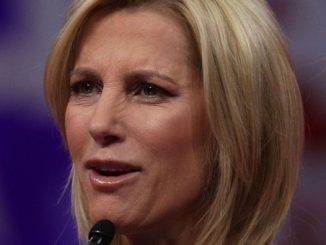
Even though TV’s most famous doctor was earning $700,000 per episode in the final season, *House* star Hugh Laurie said he still feels like a fraud.
Laurie regrets playing a “fake version” of a doctor instead of becoming a real one, as his father had hoped. He admitted that his “dad would have hated” the easier path he chose by becoming an actor.
Keep reading to find out why Laurie chose acting over medicine.
Dr. William (Ran) Laurie, Hugh’s father, had big dreams for his youngest son, born in June 1959.
Hugh Laurie was on track to follow in his father’s footsteps. His father was not only a respected physician but also a 1948 Olympic gold medalist in rowing and a graduate of a Cambridge college.
When British-born Hugh Laurie was studying at the same college as his father, he was also a member of the rowing team, with plans to train for the Olympics and then go to medical school.
However, Laurie discovered a drama club, the Cambridge Footlights, a sketch comedy group. There, he met actress Emma Thompson (*The Remains of the Day*) and his future comedy partner, Stephen Fry, who later co-starred with him in the 1997 film *Wilde*.
Laurie’s path changed completely.
Throughout the 1980s and 1990s, the now 64-year-old actor appeared in several TV shows, including the BBC sitcom *Blackadder*, where he co-starred with Fry.
Hugh Laurie also appeared in the 1995 film *Sense and Sensibility* with Emma Thompson, with whom he had once been in a relationship. He starred in Disney’s live-action *101 Dalmatians* (1996) and even made a guest appearance on *Friends*.
In 2004, Laurie was offered the chance to play a doctor in a new TV series called *House*, a medical drama that ran for eight seasons.
In his Golden Globe-winning role as Dr. Gregory House, Laurie dropped his British accent and perfectly played the narcissistic genius who led a teaching hospital in New Jersey.
During the show’s run, Laurie became Hollywood’s most popular doctor, gaining a huge global fan base. However, life as a celebrity also brought its own challenges.
“I had some pretty bleak times, dark days when it felt like there was no way out,” Hugh Laurie said in a 2013 interview with *Radio Times* (via *Daily Mail*). “I have a strong work ethic, so I was determined never to be late or miss a single day of filming. You wouldn’t catch me calling in sick, saying, ‘I think I’m getting the flu.’ But there were times when I’d think, ‘If I had a little accident on the way to the studio and got a couple of days off to recover, that would be great.’”
Those days off didn’t come until 2012, with the final season of *House*.
After that, Laurie kept busy, appearing in TV shows like *Veep* and the 2015 science fiction film *Tomorrowland*, which starred another famous TV doctor, George Clooney.
In 2016, Hugh Laurie took on another doctor role, this time as neuropsychiatrist Dr. Eldon Chance in the TV series *Chance*.
The *Maybe Baby* star explained to the *Los Angeles Daily News*, “As a gambler, my instinct is to walk away after even a modest win… Yet I was drawn back to this wonderful project that was simply irresistible.” Comparing *House* to his role in *Chance* (which was canceled after two seasons in 2017), Laurie said, “The characters are very different. Their medical practices and attitudes toward life are completely different.”
Despite his Hollywood fame, Laurie, who also starred in 2018’s *Holmes & Watson*, still feels he let his father down by not becoming a real doctor. His father, who passed away from Parkinson’s disease in 1998, had been a respected physician.
“My father was a real doctor. If it’s true that many men try to become versions of their father and fail, it seemed fitting that I ended up being a fake version of a doctor,” said Laurie, who also played a doctor in the 2005 film *The Big Empty*.
“My father had high hopes for me to follow him into medicine,” Hugh Laurie said. “I would have liked to become a doctor myself, and I still have dreams about being one. We live in a world of shortcuts, don’t we? And I took those shortcuts. Dad would have hated that.”
Laurie calls himself a “cop-out,” adding, “Honestly, this causes me a lot of guilt.”
What do you think about Hugh Laurie’s surprising confession? Please share your thoughts in the comments below and share this story so we can hear what others think!
Poor Nurse Takes Care of 4 Elderly Sisters, Learns Their Will after They All Die

A poor nurse named Cassandra Myers lived a modest life while working at a local hospital. Although nurses generally earn decent wages in America, Cassandra found herself struggling financially because much of her income went toward paying off her late parents’ debts. She resided in her ancestral home, located in a peaceful neighborhood where her only nearby companions were four elderly siblings, all in their 80s.Cassandra often observed these elderly neighbors struggling with daily tasks like carrying groceries, cleaning their house, taking out the trash, and preparing meals. Realizing that they were in need of assistance, she offered her help whenever she returned from her hospital shifts. The four sisters appreciated her efforts and enjoyed her company immensely. One day, the eldest sister, Marie, expressed her gratitude, suggesting they pay Cassandra for her help.
However, Cassandra kindly refused, explaining that she was helping them out of care and not for financial gain. She made it a point to assist them daily, cooking their meals, washing dishes, organizing their medications, and even helping them get dressed. During one dinner together, Cassandra asked why the sisters hadn’t considered moving to a nursing home, where they could receive better care. Clara, one of the sisters, revealed that they had chosen to stay together in their own home rather than be separated in a nursing facility. They valued spending their remaining days surrounded by genuine love and care, which they felt might not be present in a nursing home environment.Understanding their perspective, Cassandra reassured them that she would always be there to help. The sisters were deeply touched by her kindness, with one of them remarking that she was the best neighbor anyone could ask for. Despite her exhaustion from work, Cassandra remained committed to visiting the siblings every day, sharing meals with them and tending to their needs. Sadly, as time passed, the sisters began to pass away one by one. Cassandra mourned each loss deeply and took it upon herself to organize their funerals. After the last sister passed away, Cassandra attended the funeral, where she met a lawyer named Abigail Smith. The lawyer expressed her gratitude to Cassandra for taking care of the sisters and informed her that there was something important she needed to discuss. The following day, Cassandra visited Abigail’s office, where she was handed a document. The lawyer explained that the sisters had children living in nearby states, but these children had not bothered to attend any of the funerals. Hurt by their children’s neglect, the sisters had decided to change their will, leaving everything to Cassandra instead.Cassandra was stunned by this revelation. She never expected to inherit the sisters’ estate, which included money, jewelry, and the house. Although she felt undeserving, Abigail reassured her that the sisters saw her as more of a daughter than their own children, making her the rightful heir. The inheritance was more than enough for Cassandra to pay off her parents’ debts, but the situation became complicated when the sisters’ children learned about the will. Initially, they wanted to contest it in court, but before they could proceed, Attorney Abigail sent them letters from their mothers. These letters, identical for each child, expressed the mothers’ love but also their deep disappointment over being neglected in their later years. The letters explained that the mothers had left their fortune to someone who had been there for them when their children were not. Upon receiving the letters, the children decided to withdraw their lawsuit. They realized how poorly they had treated their mothers and accepted that they did not deserve any part of the inheritance.Though Cassandra never met the sisters’ children, she noticed fresh flowers on the women’s graves each year on their death anniversaries. This small gesture brought her comfort, knowing that the sisters’ children were finally honoring their mothers, even if it was too late.



Leave a Reply